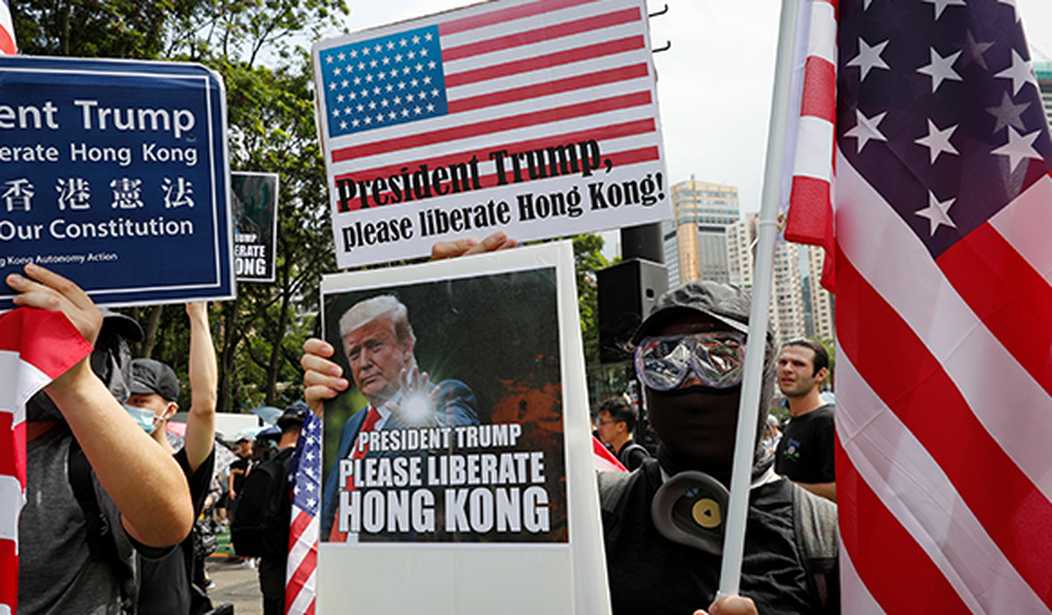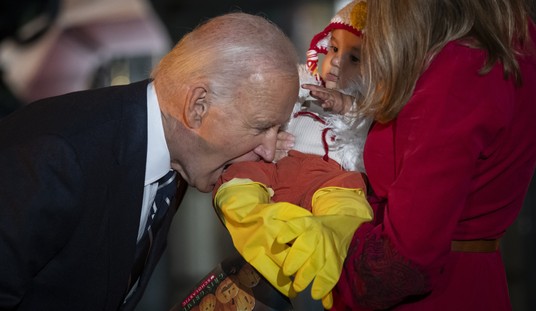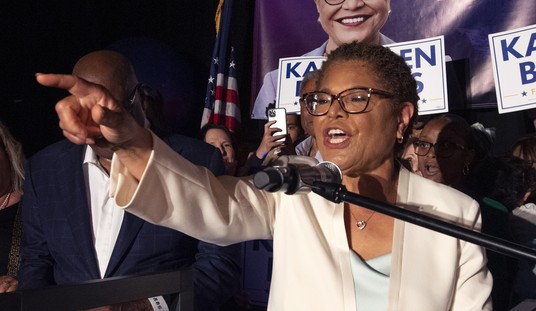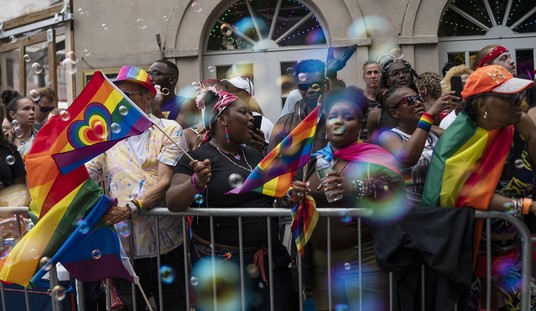The Chinese Communist Party has blazed the trail for Democrats in passing election reforms for Hong Kong with similar motives as those behind the Democrats’ efforts pass H.R. 1 — providing a mechanism to ensure that only Communist Democrat party members are elected to hold public office. We should be diligent in looking for a late-night amendment to H.R. 1 in the Senate similar to one provision of the new Hong Kong law that seems to have been overlooked by the Democrats in the House: the Chinese legislation creates a pro-Bejing panel of government officials to vet all candidates who seek to run for office in Hong Kong.
Once again, China is arguing that this reform – with its political loyalty test for candidates – is necessary to ensure stability. But critics will argue it abolishes another fundamental underpinning of the city’s special freedoms – the ability to channel dissent through the political process itself.
The final vote in the Great Hall of the People — 2895 to 0, with one abstention (probably in the bathroom at the time of the vote).
I’m not sure Nancy Pelosi could muster all 220 Democrats in the House to pass a provision setting up a Democrat-controlled committee to pre-approve all candidates who seek to run for Congress — but then again, maybe she could.
Hong Kong’s parliament – or Legislative Council (LegCo) – helps to make Hong Kong’s laws.
It is made up of 70 seats – but only about half are directly voted for by the public. In recent years, some of the seats have been filled by pro-democracy figures.
The other half has mostly been filled by smaller groups representing special interests such as business, banking and trade, sectors which are historically pro-Beijing.
The proposed new law will give Hong Kong’s heavily pro-Beijing electoral vetting committee the power to vet all LegCo candidates and elect many of its members.
Given that H.R. 1 also dictates to states how they must conduct elections in the future, I suppose an amendment could be added in the Senate that would require States to create similar entities — to be approved by the federal government obviously — and persons seeking to run for state legislature must also pass a “loyalty” test to the Democrats in Washington.
Buried in the BBC story is the KEY point that needs to be understood in order to have a full appreciation for why there are parallels between what the Chinese are doing in Hong Kong and what the Democrats are doing in Washington with regard to “election reform.”
However, the Chinese embassy in London’s chargé d’affaires Yang Xiaoguang told the BBC that the UK and China had a “different definition” of democracy.
Asked about possible UK sanctions against Chinese individuals over Hong Kong and other issues, Mr Yang said China would “safeguard our interests at any cost.”
The fact of the matter is that the definitions of “democracy” employed by the Chinese and the Democrats are beginning to converge on a point of commonality. The Democrats talk in the media about promoting “unity”, while the Chinese promote the concept of “stability”. They are referring to the same thing — the interests of the party subverting the interests of the people.
The key is eliminating political opposition — it suggests disunity and creates instability — and the challenge such political opposition poses to the party’s grip on power.
The Democrats are currently using the Justice Department and the criminal justice system to establish “markers” in the public discourse about political opposition that needs to be marginalized and eliminated if possible. The cookie-cutter charging documents all containing the same dozen or so paragraphs amount to a novelized version of events on January 6, and are being used to write the history of the day. It’s a de facto version of what the Chinese just passed into law — official government statements that certain political actors and supporters are disqualified from further involvement in the political process.
I have now seen the first — at least to my knowledge — motion to transfer venue of a criminal case filed in connection with the January 6. How this motion — and the hundreds that are sure to follow — is handled by DOJ and the Judiciary will have much to say about how much farther the Democrats into to do down this road of political disenfranchisement.















Join the conversation as a VIP Member